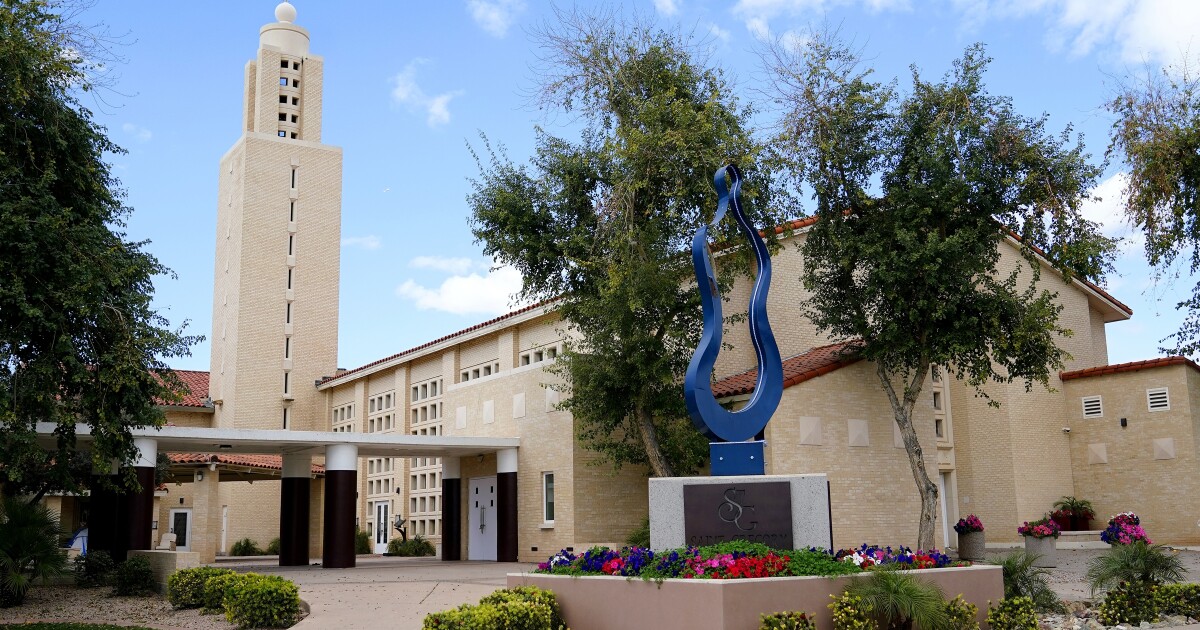When is a baptism not a baptism?
When the cleric who presided over the ceremony alters the words of the ritual in a fundamental way that undermines its meaning, according to the Vatican.
And even changing a single crucial pronoun can invalidate a baptism, he said.
A Catholic priest, Father Andres Arango, resigned Feb. 1 as pastor of his Phoenix parish after acknowledging he used the wrong baptismal formula during more than two decades of priestly ministry in Arizona, California and Brazil.
Arango said: “We baptize you in the name of the Father, the Son and the Holy Spirit”, when he should have said “I baptize you”.
Theologically, that makes all the difference, the Vatican noted in a determination issued in 2020, because it is not the “we” of the congregation that baptizes, but the “I” of Christ Jesus who works through the priest.
Now, the Diocese of Phoenix has encouraged all people who were baptized with Arango to receive “valid” baptisms, and possibly other initiation rites. Thousands of people were affected, according to the diocese.
WHAT IS THE MEANING OF BAPTISM AND WHY IS IT IMPORTANT THAT IT BE “VALID”?
Baptism is the basic rite of initiation into the Christian faith. In Catholic theology, baptism is considered a sacrament — a visible rite that conveys spiritual grace — and is “necessary for salvation,” according to the Catechism of the Catholic Church. “The Church knows of no means other than baptism to guarantee entrance to eternal bliss,” that is, to heaven.
For a sacrament to be valid, it must be presided over correctly, as the Church teaches.
“For us baptism is for salvation, therefore it is of the utmost importance. We need to ensure that it is done correctly,” said Jay Conzemius, court moderator for the Diocese of Pittsburgh and former president of the Canon Law Society of America.
HAS THIS HAPPENED BEFORE?
Yes. Cases have arisen in Michigan and Oklahoma where priests learned their baptism was invalid.
In June 2020, the Vatican published a guide according to which the formula “we baptize you…” was invalid, and all people baptized with it had to be rebaptized with the correct phrase.
The Holy See said at the time that some priests it did not identify were using the “we” formula to give baptism a more communal feel that would involve parents, godparents and the community in welcoming a new member of the Catholic Church. But in an explanatory note that accompanied his decision, he recalled that when a priest baptizes someone, it is actually Christ who applies the sacrament, not the community.
“Modifying on your own initiative the form of application of a sacrament is not only a liturgical abuse… but a wound inflicted on ecclesial communion,” the Congregation for the Doctrine of the Faith pointed out in the note.
The Vatican clearly knew that its determination would cause a stir, but for such an important sacrament concerning the salvation of the soul, it found it necessary to insist that independent variations are not only unacceptable, but invalid.
IS THE CHURCH SAYING THAT THE INVALIDLY BAPTIZED WILL GO TO HELL?
No, according to ecclesiastical representatives and theologians.
“Even if we want to ensure that everything is done as required to perform the ritual, what needs to be emphasized just as loudly is the concept that God is not limited by the mistakes a priest might make,” said Gregory Hillis, professor of theology at Bellarmine University, a Catholic institution in Louisville, Kentucky.
“No one is assuming that God is going to say, ‘Well, I’m sorry, (you were baptized) with the first person plural and not the first person singular,’” Hillis stated.
Monsignor Stephen Doktorczyk, vicar general of the Diocese of Orange, California, added: “There is a saying that God acts through the sacraments, but he is not limited to the sacraments.”
WHAT OTHER REPERCUSSIONS DOES THIS HAVE?
If a person’s baptism is deemed invalid, subsequent rituals such as confirmation and, in the case of priests, ordination, also lack validity as sacraments.
A priest in the Archdiocese of Detroit discovered in 2020 that the deacon who baptized him as a child used “we” instead of “I.” He was forced to receive a valid baptism, as well as another valid confirmation and ordination, because the validity of those rites depended on the validity of his baptism. And the archdiocese also had to arrange for sacramentally valid baptisms to be performed for those whose rituals he had presided over without knowing that his ordination was invalid.
HAVE SOME PRIESTS ALTERED THE BAPTISMAL FORMULA IN OTHER WAYS?
Yes, which perhaps explains the Vatican’s insistence on verbal precision in 2020. It issued a nearly identical order in 2008, also due to variations in the baptismal formula that was being used by some English-speaking priests.
At the time, some priests tried to tone down the patriarchal character of the rest of the formula by replacing references to “Father, Son, and Holy Spirit” with phrases like “Creator, Redeemer, and Sanctifier.”
Once again, the Vatican declared that these baptisms were invalid and had to be performed correctly.
IS IT ALL WORTH IT, ESPECIALLY WHEN MANY PEOPLE ARE DANGING AWAY FROM ORGANIZED RELIGION?
Words matter, say Catholic authorities.
“The Church cannot change what was instituted by Christ himself,” Monsignor Antonio Miralles, a sacramental theologian at the Pontifical University of the Holy Cross, wrote at the time of the 2008 ruling.
However, doctrinal determinations have real-world consequences — like trying to track down thousands of people to inform them of the worrying news that their sacramental record is invalid, said Father Thomas Reese, a Jesuit priest and columnist for Religion News Service.
Reese would have preferred the Vatican to have said in its determination that such baptisms were valid but not “lawful” or performed in accordance with the rules, in which case the priest could face disciplinary action without affecting believers.
“That’s the problem when you have a handful of bureaucrats in a room with no idea of the pastoral consequences of the decision,” he said.
___
The Associated Press is supported in its coverage of religious affairs through its partnership with The Conversation US, with funding from Lilly Endowment Inc. The AP is solely responsible for content.
–


